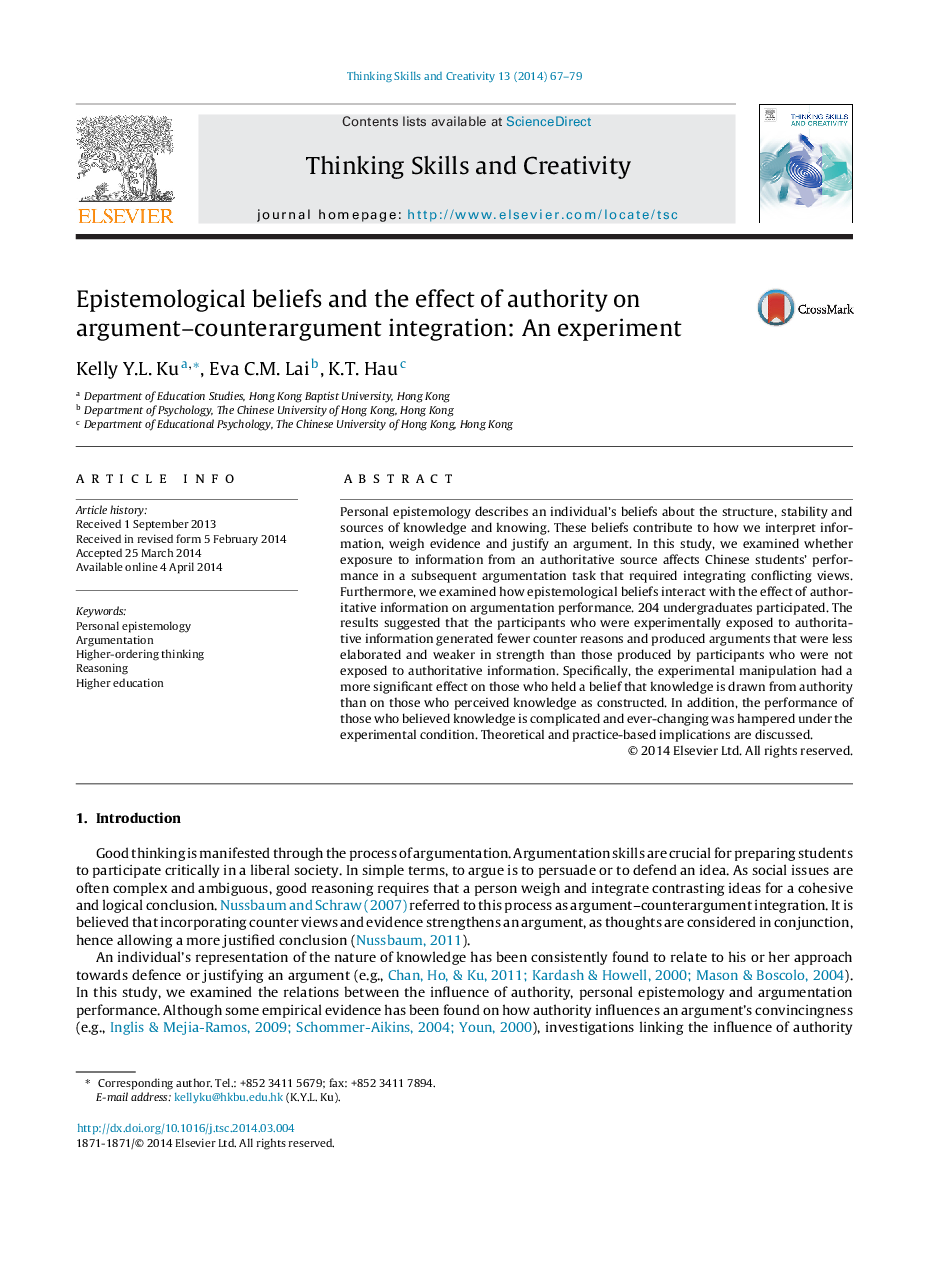| Article ID | Journal | Published Year | Pages | File Type |
|---|---|---|---|---|
| 6852068 | Thinking Skills and Creativity | 2014 | 13 Pages |
Abstract
Personal epistemology describes an individual's beliefs about the structure, stability and sources of knowledge and knowing. These beliefs contribute to how we interpret information, weigh evidence and justify an argument. In this study, we examined whether exposure to information from an authoritative source affects Chinese students' performance in a subsequent argumentation task that required integrating conflicting views. Furthermore, we examined how epistemological beliefs interact with the effect of authoritative information on argumentation performance. 204 undergraduates participated. The results suggested that the participants who were experimentally exposed to authoritative information generated fewer counter reasons and produced arguments that were less elaborated and weaker in strength than those produced by participants who were not exposed to authoritative information. Specifically, the experimental manipulation had a more significant effect on those who held a belief that knowledge is drawn from authority than on those who perceived knowledge as constructed. In addition, the performance of those who believed knowledge is complicated and ever-changing was hampered under the experimental condition. Theoretical and practice-based implications are discussed.
Related Topics
Social Sciences and Humanities
Psychology
Developmental and Educational Psychology
Authors
Kelly Y.L. Ku, Eva C.M. Lai, K.T. Hau,
